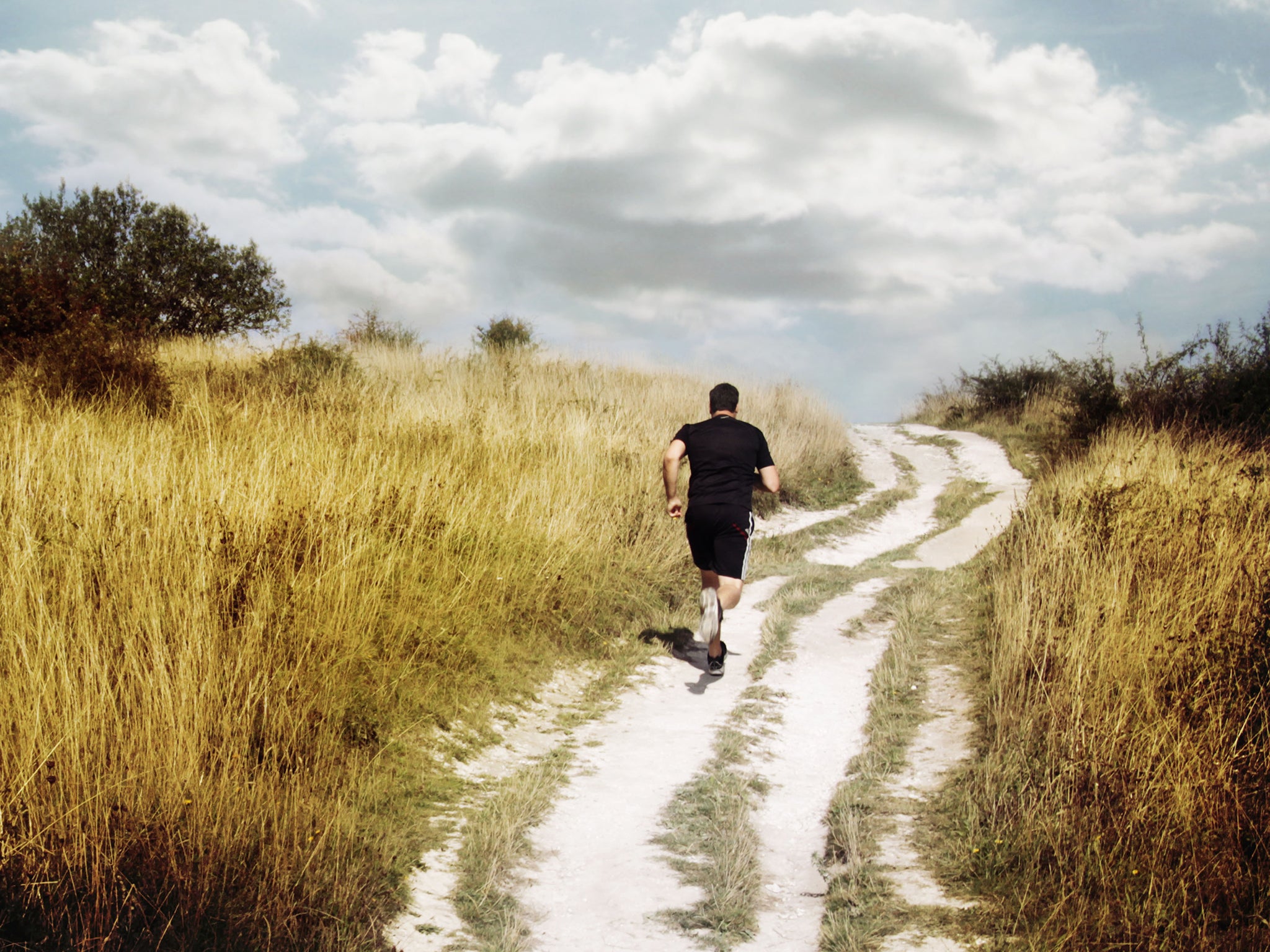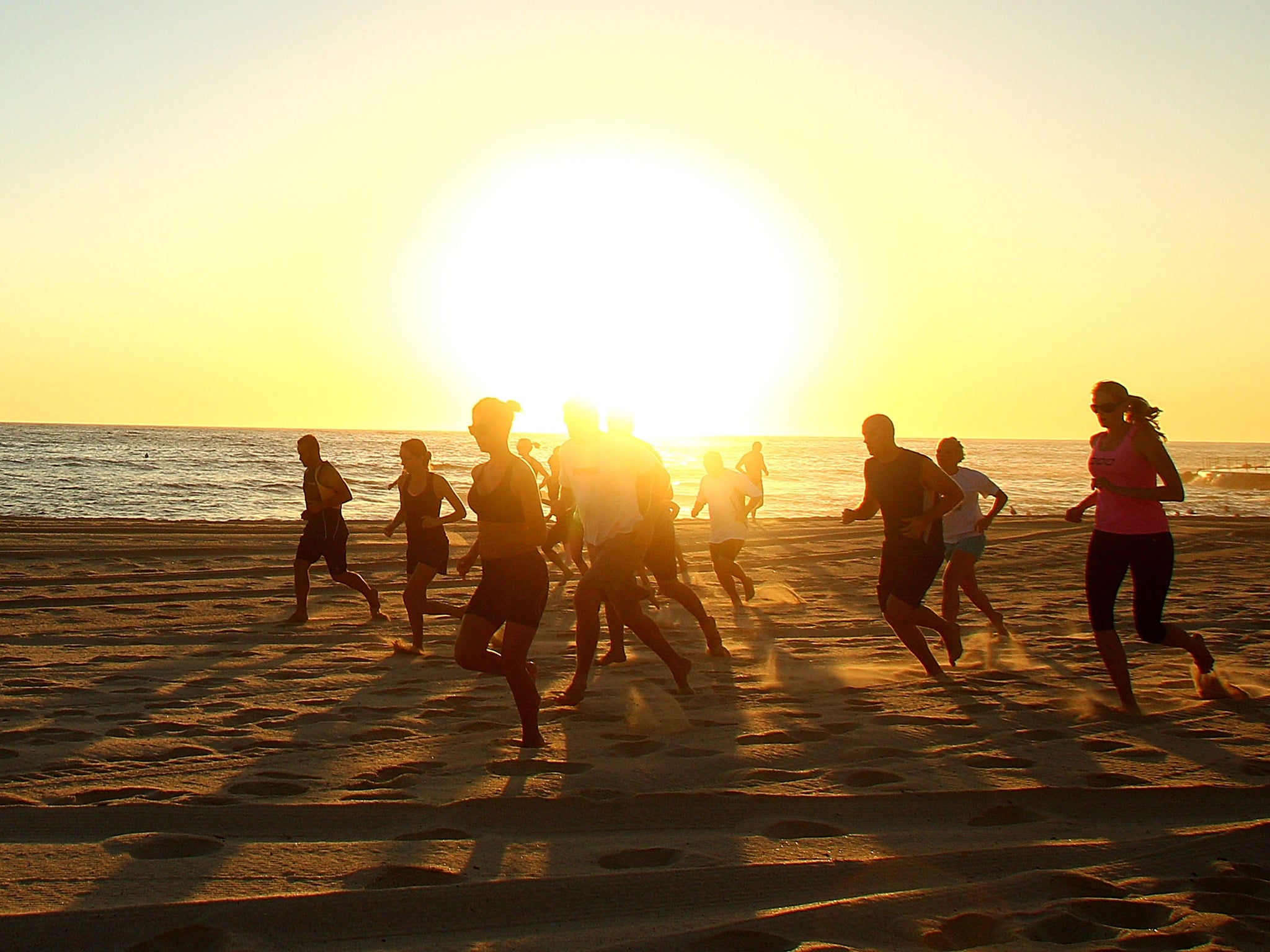New Year's resolutions: 9 ways to stick to your exercise regime
Fitness experts give their tips on maintaining motivation to stick to your exercise plans

Your support helps us to tell the story
From reproductive rights to climate change to Big Tech, The Independent is on the ground when the story is developing. Whether it's investigating the financials of Elon Musk's pro-Trump PAC or producing our latest documentary, 'The A Word', which shines a light on the American women fighting for reproductive rights, we know how important it is to parse out the facts from the messaging.
At such a critical moment in US history, we need reporters on the ground. Your donation allows us to keep sending journalists to speak to both sides of the story.
The Independent is trusted by Americans across the entire political spectrum. And unlike many other quality news outlets, we choose not to lock Americans out of our reporting and analysis with paywalls. We believe quality journalism should be available to everyone, paid for by those who can afford it.
Your support makes all the difference.We all have a grand plan or two up our sleeves as a new year begins.
Starting, and sticking to, an exercise plan is one of the most popular. You don’t need to be the fittest, the fastest or the best to benefit from exercise, but you do need to find the motivation to carry on exercising, however humble your beginnings.
We’ve sourced the smartest expert advice to motivate you into exercising now, and throughout 2016.
1. Prepare for the worst
Susanna Halonen, happiness coach at Happyologist.co.uk and author of Screw Finding Your Passion
“Practice ‘if planning’. Think about what could prevent you from doing your habit. Then, come up with a solution for how you’re going to deal with it, to make sure it doesn’t prevent your progress. For example: ‘If I feel too tired to go the gym when I wake up, then I will go for a brisk 15 minute walk in fresh air instead.’
“Make your new habit as easy as possible to stick to. Make sure you have all the resources you need to do it. Schedule it into your calendar if it’s a jog, empty your cupboards from sweets if it’s a less sugar thing, and put your phone away from your bed so you can’t press snooze without getting out of bed – or disable the snooze option completely.”
2. Mind your feelings
Dr Mark Coulson, associate professor in psychology at Middlesex University’s School of Health and Education
“Feelings of hunger, fatigue, and laziness are just feelings. Be interested in them and notice that when you allow them to exist they start to lose their power over you. Welcome them in, like old friends who will stay with you a little while and then disappear. Think, ‘Hello, fatigue, nice to see you, come in and make yourself comfortable. I hope you don’t mind if I carry on with what I was doing before you got here.’”
3. Nutrition counts
Matt Roberts, trainer to David Cameron and Naomi Campbell, mattroberts.co.uk

“Eat a breakfast high in protein. This will make you more alert. This is because certain amino acids (the building blocks of proteins) are needed to synthesise neurotransmitters (brain chemicals that communicate information throughout the brain and body): dopamine, serotonin and norepinephrine, which are vital for increased energy. Research also suggests it keeps you fuller for longer, which can impact your food choices later on in the day.
“Stock up on vitamin D – during the summer the sun provides us with plenty of ultraviolet B radiation for our bodies to produce vitamin D. Vitamin D plays a vital role in the human body and is essential for immune function, bone health and the production of certain hormones. Between the months of November and March the sun lacks potent UVB rays and so we have to source our vitamin D elsewhere. Great sources are eggs, meat and oily fishes (think salmon, mackerel and sardines) and can also be supplemented.
“You can’t out-train a poor diet. Diet is key to recovery from exercise, and recreational exercisers should eat a well balanced meal containing protein, carbohydrate and fat from whole food sources, one to two hours after exercise as well as rehydrating with water. A real-life example would be a chicken breast with mixed green vegetables, couscous and a small handful of nuts.”
4. Prepare for the next 66 days
Chris Hall, Founder of Hall Training Systems, personaltraineroxford.com
“Despite the common myth that it takes 21 days to form a habit, science has shown that in order for something to really become a habit you need to allow 66 days. Having a goal over these initial two months will really help to keep you focused and allow you to monitor your progress, see changes in your body and, above all, increase the likelihood of continuing on well into the following year.
“My advice would be to have two goals: a long-term goal – something you wish to achieve across the next eight to 12 months, for example. This could be preparing for a half marathon, or losing a dress size or two. And a short-term goal – what you wish to achieve in several weeks or even a few months, whether this is reaching the 5k mark comfortably, or fitting into the jeans you had on before Christmas.”
5. Be accountable
Hilda Burke, integrative psychotherapist, hildaburke.co.uk
“Working with my clients who are trying to break old habits and mould new ones, I find something that really helps them is ‘checking in’ on where they are on a weekly basis in our sessions. This external accountability can really help people to keep on track. Obviously, not everyone has access to a psychotherapist, but stating an intention to a good, trusted friend who you know is supportive towards your goal can really help. Verbalising an intention alone can help make it feel more concrete. Some people find that making a kind of contract to check in with that person every week or fortnight can help them to keep on track. Choosing the right person is important – it needs to be someone who can be gently encouraging rather than guilt/shame provoking.”
6. Work out why you’re exercising, and write it down
Pete Cohen broadcasts at periscope.tv each morning at 7am; talesofalifecoach.com
“Most people don’t like exercise. As much as they try to convince themselves that they do, they don’t. We are driven by pleasure and we avoid pain. If you don’t find a way to enjoy what you’re doing, you’ll fail. What people need is willpower. True willpower is when you have the will to do something that’s important to you when when you don’t feel like it, or you’re not in the mood. When was there a time in your life that you wanted to achieve something so much that you had the willpower that you needed? Find out why you’re doing something, write down a whole load of compelling reasons, and it will be an uncontrollable force.”
7. Practise vedic meditation
Meditation expert Will Williams, willwilliamsmeditation.co.uk
“Vedic meditation is a simple yet transformative technique that allows your mind and body to go into the deepest possible state of relaxation. When Harvard measured the effects of the vedic method versus mindfulness on present moment awareness (using standardised tests) the effect size was three to four times greater when using personalised mantras (as in vedic meditation) than it was when people were purposefully trying to be mindful.
“As well as making us more resilient to stress and anxiety, vedic meditation has been proven to enhance productivity, motivation and concentration by enhancing the ‘feel-good’ chemicals in our brains and those responsible for motivation – dopamine and serotonin. So negative self-talk reduces, we gain clarity, it becomes easier to stick to goals.
“And if exercise is one of the things you are keen to do more of, vedic meditation is a great way to balance your hormones after aerobic activity. If your exercise regime is intense, it will overactivate a part of your nervous system you probably don’t want activated. This can create hormonal changes that are far from ideal and is also responsible for unhealthy levels of lactic acid build-up. Vedic meditation processes all of the lactic acid and balances out your nervous system and your hormones, leaving you feeling great throughout the day, and highly motivated to keep up your New Year’s resolutions long after January has come to a close.”
8. Timing is everything
Dr William Bird, GP and founder of Intelligent Health and the Beat the Street global walking programme, intelligenthealth.co.uk

“Find the best time of day to suit you. If you’re not a morning person and your energy levels are low early in the day, then don’t choose that time to exercise. Exercising within two hours of a meal – before or after – will reduce the bad effects of that meal, the sugar, salt and fat. It doesn’t have to be severe exercise, a walk is fine, and doing it before a meal gives as much benefit as doing it afterwards.”
9. Reward yourself
Frida Harju, nutritionist at health and fitness app Lifesum.com
“If you are seeing results and working hard at improving your overall lifestyle, you should reward yourself, even if it’s just once a month. Make sure you give yourself a treat every now and again, and are not depriving yourself entirely of the things that you enjoy. Everything is fine in moderation, so if you have worked hard all week, reward yourself with a naughty treat. I also find that if you reach a specific goal, it is important that you reward your inner self, so be sure to buy those shoes you wanted or get that haircut you were too nervous to try before.” µ
Join our commenting forum
Join thought-provoking conversations, follow other Independent readers and see their replies
Comments